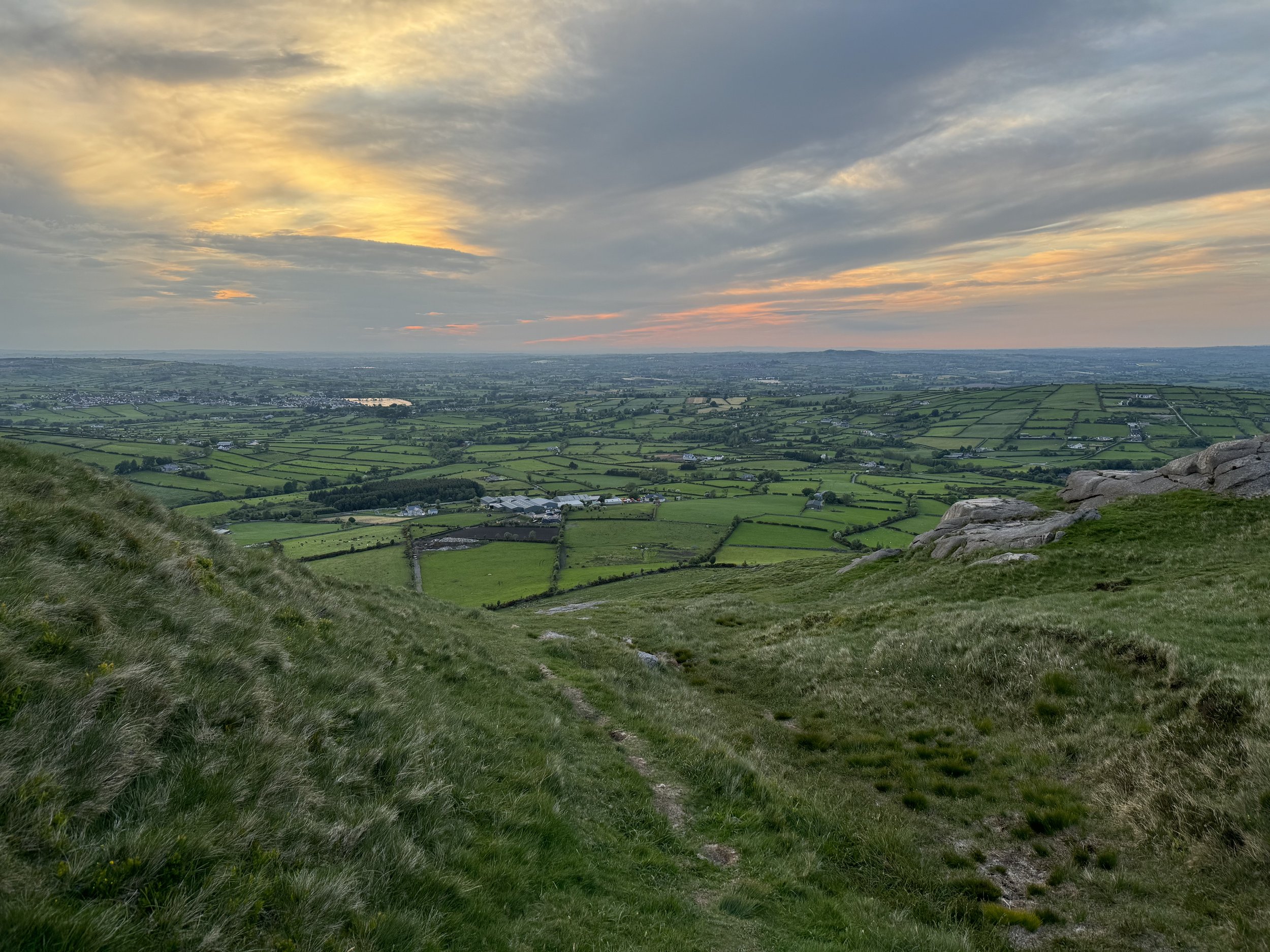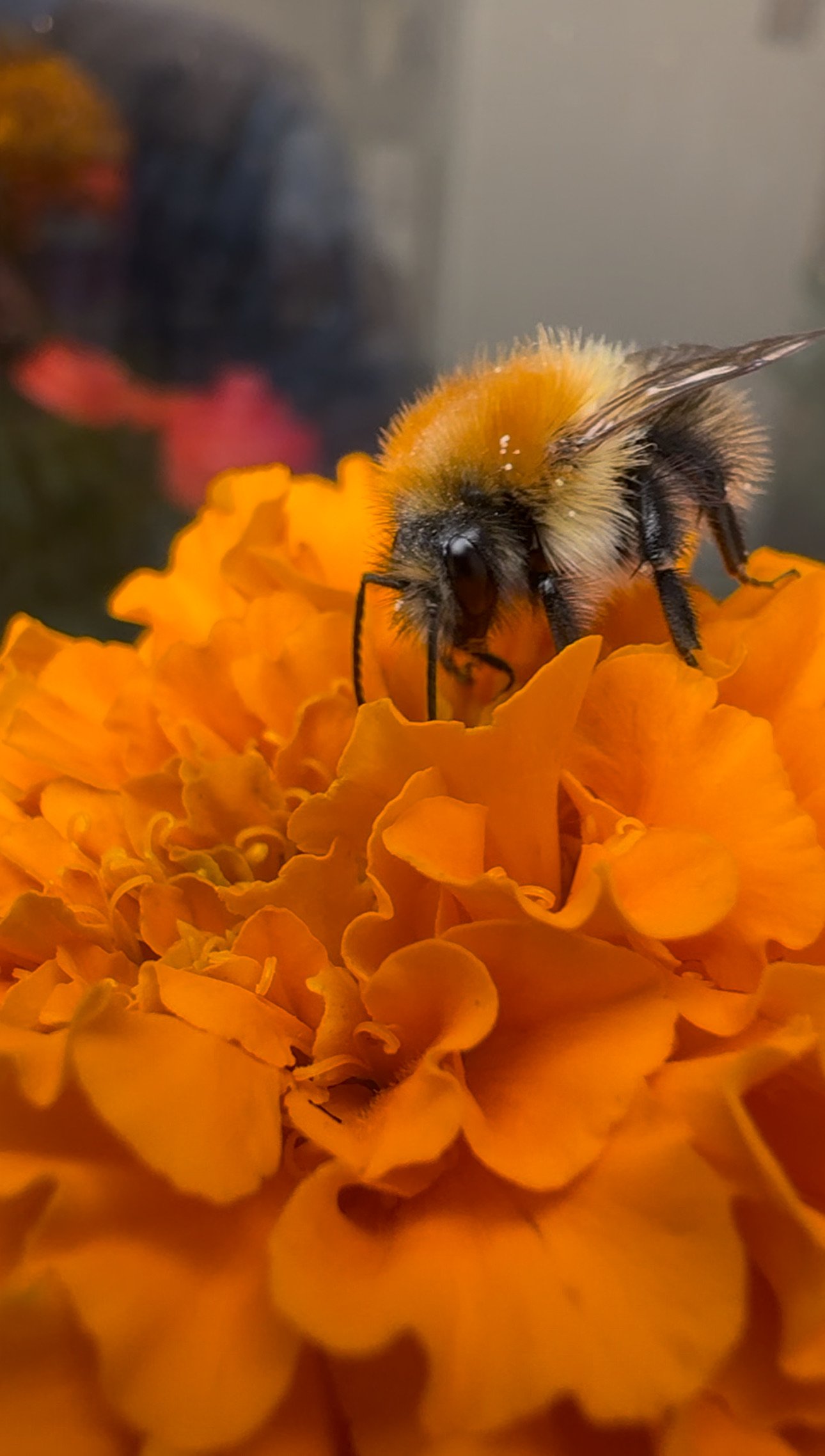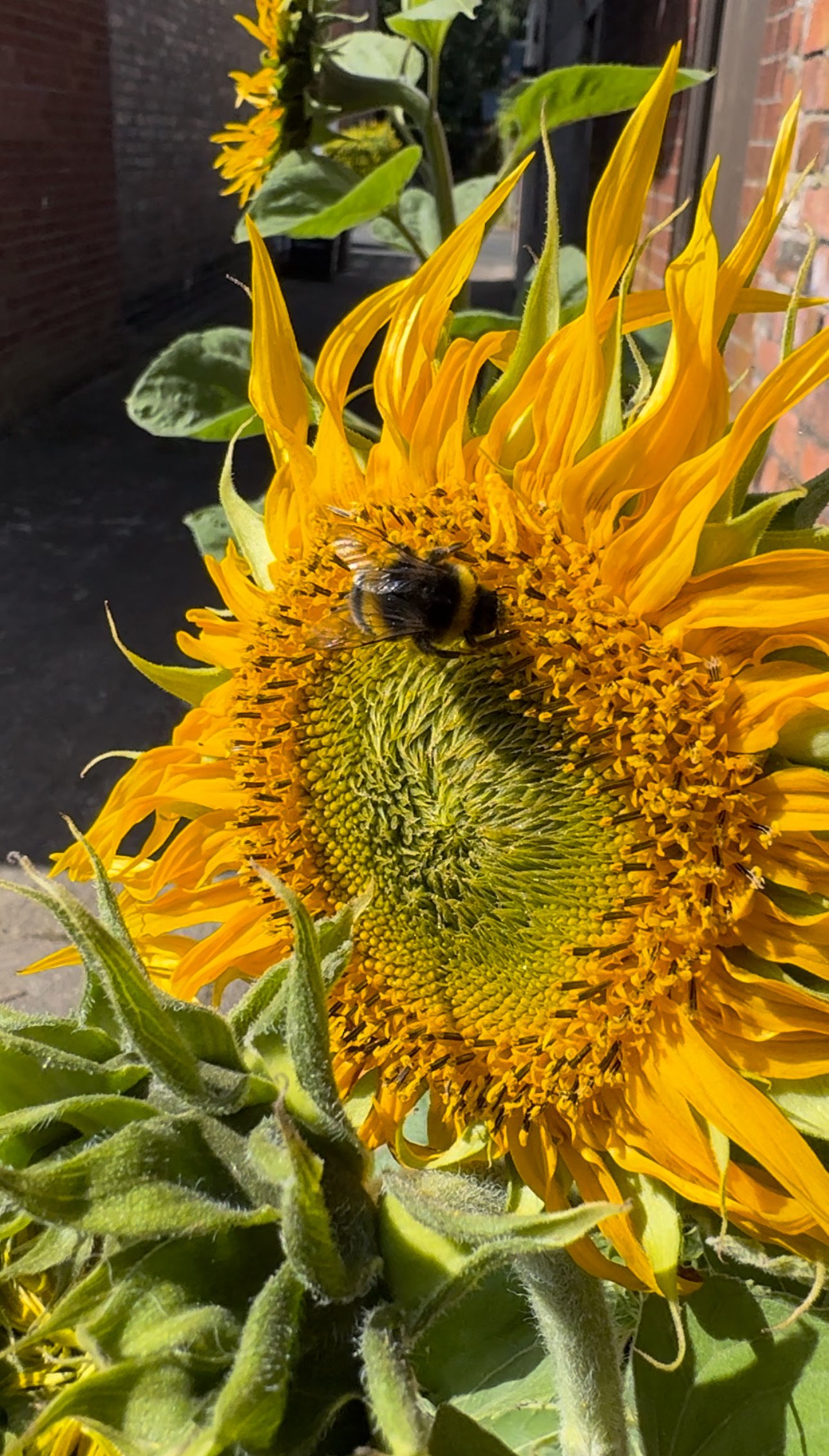
Scientific Facts:
Ecological Crisis and Global Implications
Deforestation, Air Pollution, and Wind Damage
Deforestation for conventional agriculture and other human activities is a key contributor to both air pollution and climate disasters. As trees and plants are removed, not only are ecosystems destabilised, but natural air filters are lost, exacerbating air pollution from industrial and transportation emissions. Without trees to absorb pollutants, stabilise ecosystems, and serve as natural wind barriers, disasters like wind damage and floods become more frequent. An unbalanced ecosystem, stripped of its natural defences, accelerates climate fluctuations, leaving both human communities and wildlife more vulnerable.
Soil Degradation, Water and Food Contamination
Over 50% of global soil—including in Ireland and Northern Ireland—has been degraded due to unsustainable farming practices, reducing crop yields and diminishing the nutritional value of food, which threatens long-term food security. The widespread use of synthetic chemicals further compromises food safety and pollutes rivers, lakes, and groundwater, endangering both human health and wildlife. The loss of forests for conventional agriculture also disrupts water cycles, leading to contaminated water sources, droughts, floods, and multiple other damages. Restoring soil health in both rural and urban areas through regenerative practices is vital to ensuring access to nutritious, locally-grown food and building socio-environmental and economic resilience, not only in Ireland and Northern Ireland but worldwide.
Collapse of Biodiversity
The near-total loss of native forests has driven many species to extinction and pushed others—such as puffins, bumblebees, dragonflies, butterflies, red squirrels, and more—to the brink. These species are essential to their ecosystems, supporting pollination, food chains, and ecological stability. Their disappearance disrupts the natural balance, weakening ecosystems and threatening agricultural productivity, human health, and food security.
Globally, deforestation has caused significant habitat loss, accelerating biodiversity decline and species extinction. The collapse of biodiversity weakens ecosystem resilience, making it harder for them to adapt to environmental changes, which puts both wildlife and human survival at risk.
Socio-Economic Challenges in Ireland and Northern Ireland
Economic Inactivity and Job Scarcity: Rural and urban areas across Ireland and Northern Ireland face high unemployment and limited opportunities, particularly in rural regions. This contributes to depopulation and environmental degradation as people migrate in search of better prospects.
Rural Depopulation and Land Degradation:As rural areas face job shortages, land is often abandoned and left underused. By introducing regenerative practices and creating innovative jobs, we can revitalise these regions, restore ecosystems, and empower communities to rebuild and thrive..
Urban Challenges: Urban areas face socio-economic inequality due to a lack of sustainable, meaningful jobs. Developing opportunities in ecosystem restoration and urban agriculture can revitalise degraded spaces, strengthen local economies, and foster community resilience, creating lasting growth and improved quality of life.
The Need for Change
Much of the food consumed in Ireland and Northern Ireland is imported from overseas, contributing significantly to pollution and harming marine life. This reliance on imported goods not only impacts global ecosystems but also results in damage and spoilage during long-distance shipping.
Local Solutions
To mitigate these effects, it’s crucial to cultivate crops closer to where they are consumed. This approach reduces the environmental footprint of Ireland and Northern Ireland's food systems and ensures fresher, more nutritious products reach our tables on the Island.
Transforming Agriculture
Transitioning from monoculture to regenerative agriculture is not just necessary; it's essential for our survival and prosperity. This transformative shift addresses critical challenges and opens up numerous opportunities for regenerative development:
Combat Climate Disasters: Through regenerative practices that improve soil carbon sequestration and enhance ecosystem resilience, we can significantly mitigate the impacts of climate change.
Support Wildlife Rehabilitation: We are committed to restoring and expanding habitats for species at risk of extinction such as red squirrels and bumblebees. Our efforts contribute to global biodiversity conservation, essential for ecological balance.
Enrich Food Nutrition: By focusing on regenerative techniques, we ensure that the local produce such as honey, vegetables, grains, and flowers are not only abundant but also of superior nutritional quality compared to conventional products.
Enhance Community Life: Our initiatives foster sustainable, vibrant rural and urban communities by integrating regenerative practices that improve both the environment and the quality of life for all residents.
Economic Growth and Job Creation: Transitioning to regenerative practices isn't just good for the planet—it's also economically advantageous. We're creating new jobs with fair wages in farming, research, education and more, stimulating local economies and promoting economic resilience.
The following images showcase our efforts in community improvement, educational programs in a school, and enhancing the gardens of families and friends, demonstrating our commitment to local and global socio-environmental restoration and regeneration.
Support Global Regeneration with Caring Without Borders
Your contributions empower us to plant diverse arrays of trees, flowers, and create food forests and natural ponds in both urban and rural areas.
These restored spaces not only benefit current and future generations but also become critical habitats for endangered species and serve as key biodiversity hotspots worldwide.
By joining our mission, you help cultivate thriving public food forests and gardens, restoring wildlife habitats and ensuring that future generations won’t know species like red squirrels, bumblebees, and countless others only through books.

Get Involved Today
Your contribution—whether through donating, volunteering, purchasing our products, or hiring our services—makes our vision of a restored and regenerated Ireland and Northern Ireland possible. Together, we can heal degraded ecosystems, support biodiversity, and create regenerative livelihoods, ensuring a better world for all.








